July 08, 2025
Temples in Kanchipuram: Discover the Ancient Spiritual Heart of Tamil Nadu in 2025
CM Content Team

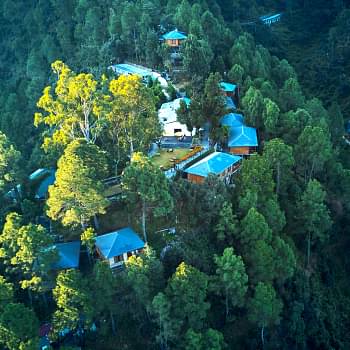
View all
140+
Resorts
July 08, 2025
CM Content Team
Kanchipuram, in Tamil Nadu, is hailed as the "City of Thousand Temples." This ancient city is woven with threads of spirituality, history, and architectural brilliance. For centuries, Kanchipuram has drawn pilgrims, scholars, and art enthusiasts alike, offering a profound journey into South India's rich cultural heritage. Beyond its spiritual significance, Kanchipuram is a destination that captivates every traveller, from families seeking a unique cultural immersion to history buffs keen on unravelling ancient mysteries and photography enthusiasts eager to capture timeless beauty.
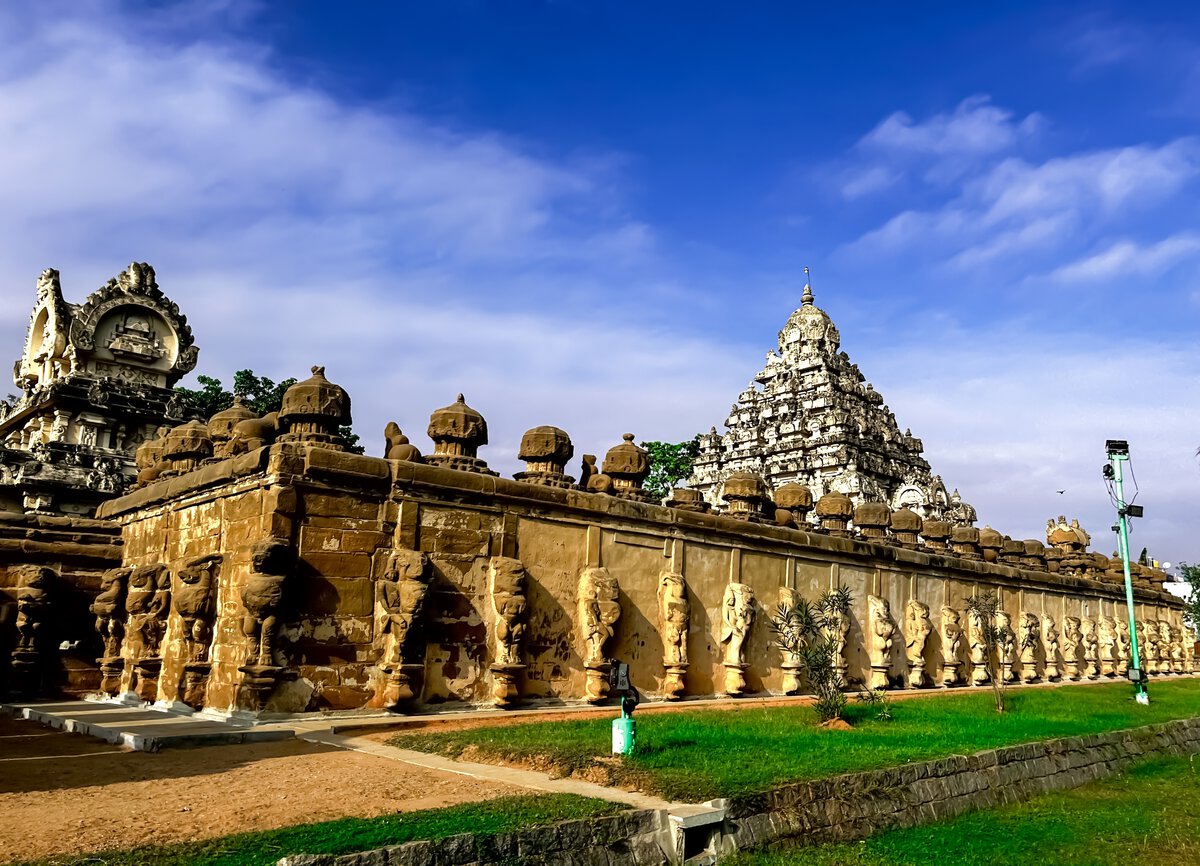
Kanchipuram's story is deeply intertwined with the rise and fall of powerful South Indian dynasties, most notably the Pallavas, Cholas, and Vijayanagara kings. Each dynasty left an indelible mark on the city's landscape, particularly in the form of magnificent temples. These structures are not just places of worship; they are living museums narrating tales of devotion, artistic prowess, and historical events.
What makes Kanchipuram truly special is its unique position as a sacred hub for both Shaivism (worship of Lord Shiva) and Vaishnavism (worship of Lord Vishnu). This dual devotion has led to the proliferation of diverse temple styles and an incredible breadth of spiritual experiences. Walking through Kanchipuram is like stepping back in time, where every stone, every carving, and every vibrant colour tells a story of a glorious past.
While the city boasts countless shrines, some stand out for their grandeur, historical importance, and sheer architectural brilliance. Let's embark on a spiritual and historical tour of Kanchipuram's most famous temples.
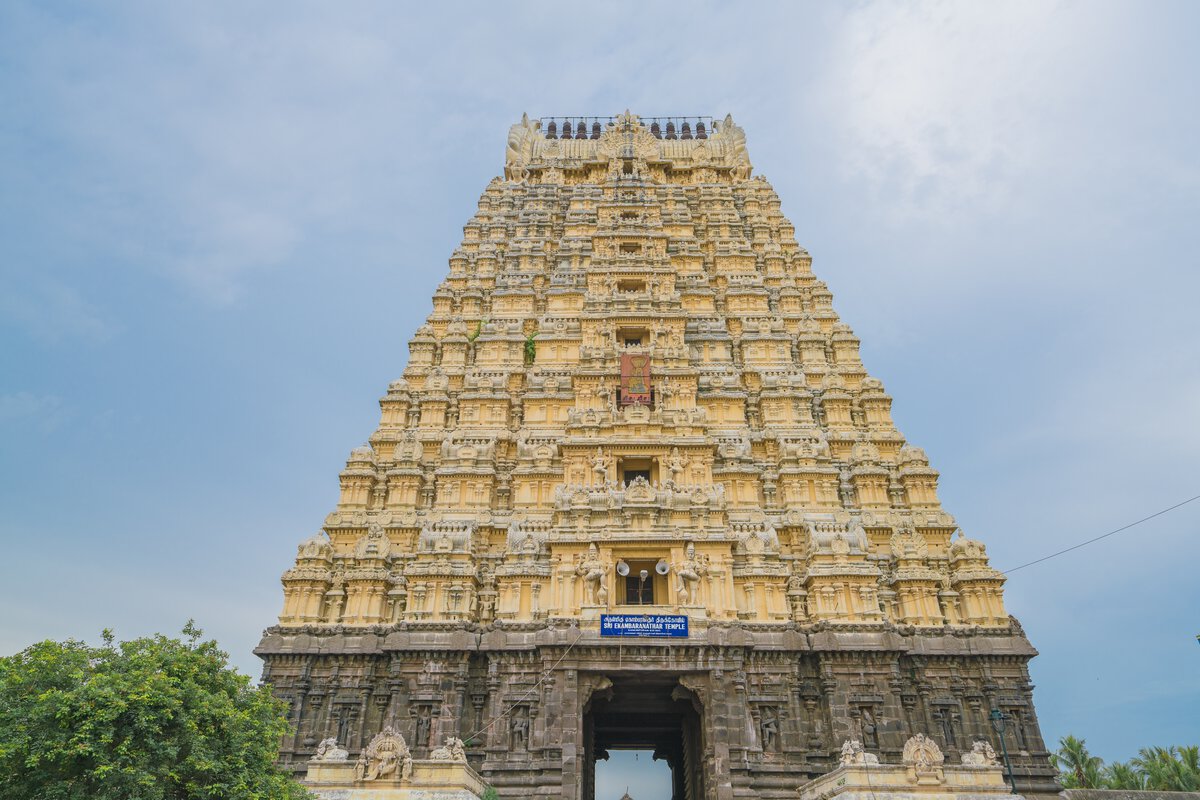
Ekambareswarar Temple is one of the largest and most revered Shiva temples in South India. As one of the Pancha Bhoota Stalams, it represents the element of Earth (Prithvi Lingam), where Lord Shiva is worshipped in his most grounded and powerful form.
With origins dating back to the Pallava dynasty, the temple saw significant expansions under the Cholas and the Vijayanagara kings, especially Krishnadevaraya. Towering over the city is its 190-foot Rajagopuram, an architectural marvel that commands attention. Inside, a majestic thousand-pillared hall welcomes devotees with detailed carvings and divine sculptures.
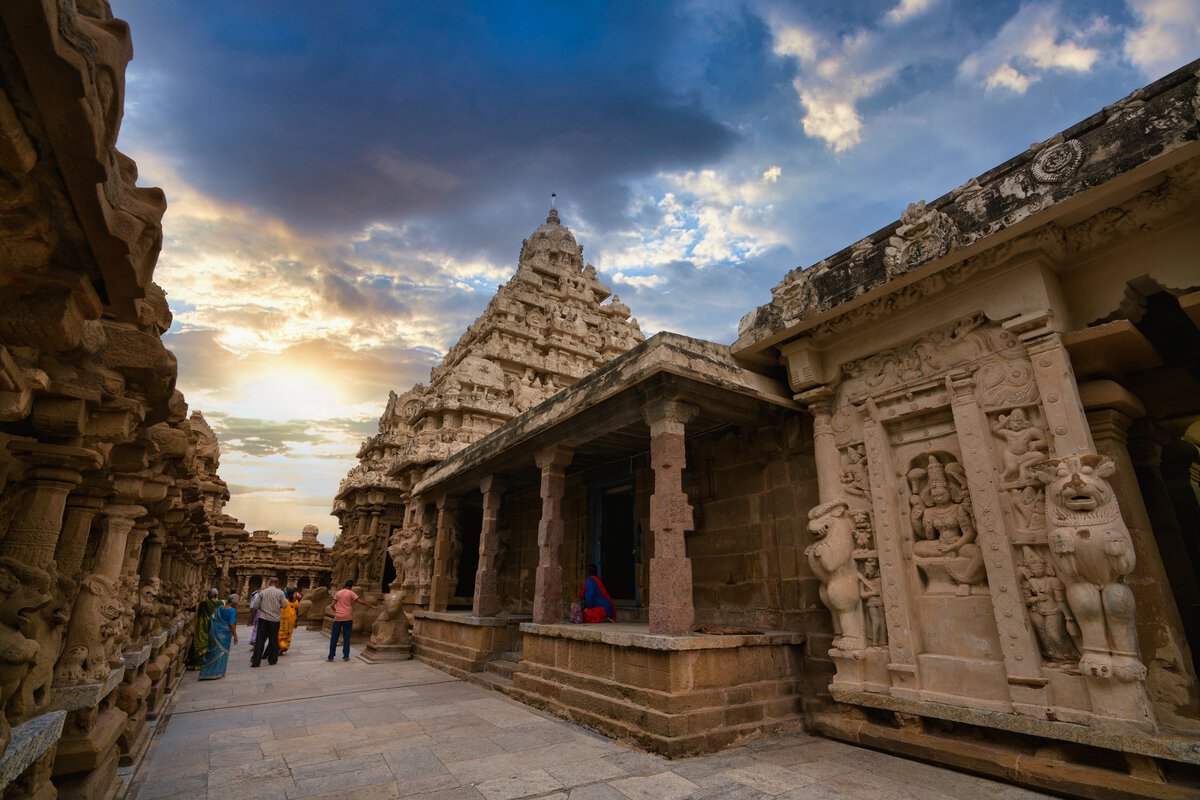
Kailasanathar Temple is regarded as the oldest surviving structural temple in Kanchipuram. This temple of Kanchipuram is a timeless tribute to Pallava architecture and devotion. Built by King Rajasimha (Narasimhavarman II) in the late 7th to early 8th century CE, it stands as a pristine example of early Dravidian style, showcasing the artistic brilliance of the Pallava dynasty.
Unlike grand temples with towering gopurams, Kailasanathar exudes a quiet elegance. Constructed entirely from sandstone, its outer walls are richly sculpted with divine imagery of various forms of Lord Shiva, Parvati, Vishnu, and celestial beings. The temple’s relatively modest vimana (tower) is pyramid-shaped, with a signature Pallava design.
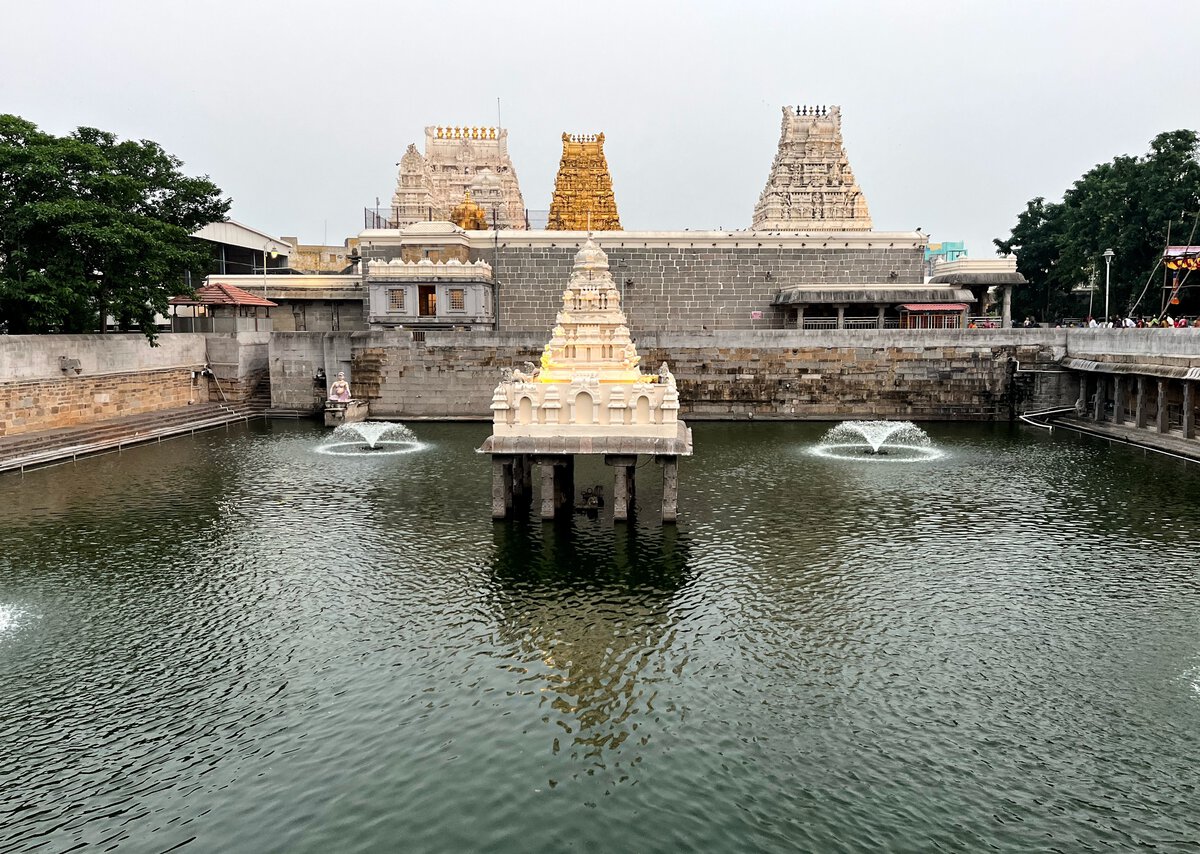
Kanchi Kamakshi Amman Temple stands as a prominent centre of Shakti worship, where Goddess Parvati, in her powerful form as Kamakshi, is the central deity. Uniquely among many temples, this is one of the 51 Shakti Peethas, believed to be sacred spots where parts of Goddess Sati’s body fell. Unlike typical Shiva temples where Parvati plays a secondary role, Kamakshi reigns supreme here.
Dating back to well before the 8th century CE, the temple has seen the patronage of many dynasties over the centuries. It retains its sacred stature through renovations and spiritual continuity.
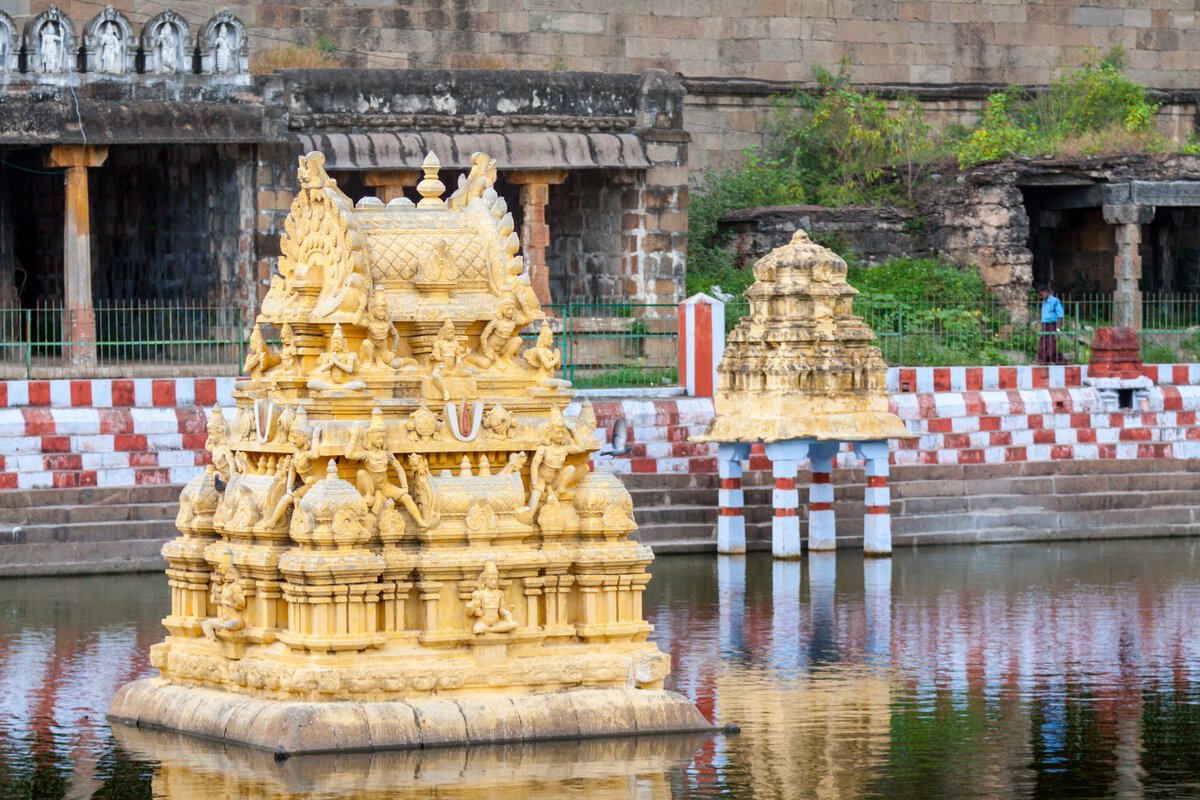
Varadaraja Perumal Temple is a sacred and highly revered pilgrimage site for devotees of Lord Vishnu. It is one of the 108 Divya Desams, the holy abodes of Vishnu celebrated in the Nalayira Divya Prabandham, the devotional hymns of the Alvar saints. Originally built during the Chola period, the temple saw major expansions under the Vijayanagara dynasty, reflecting their grandeur and artistic patronage.
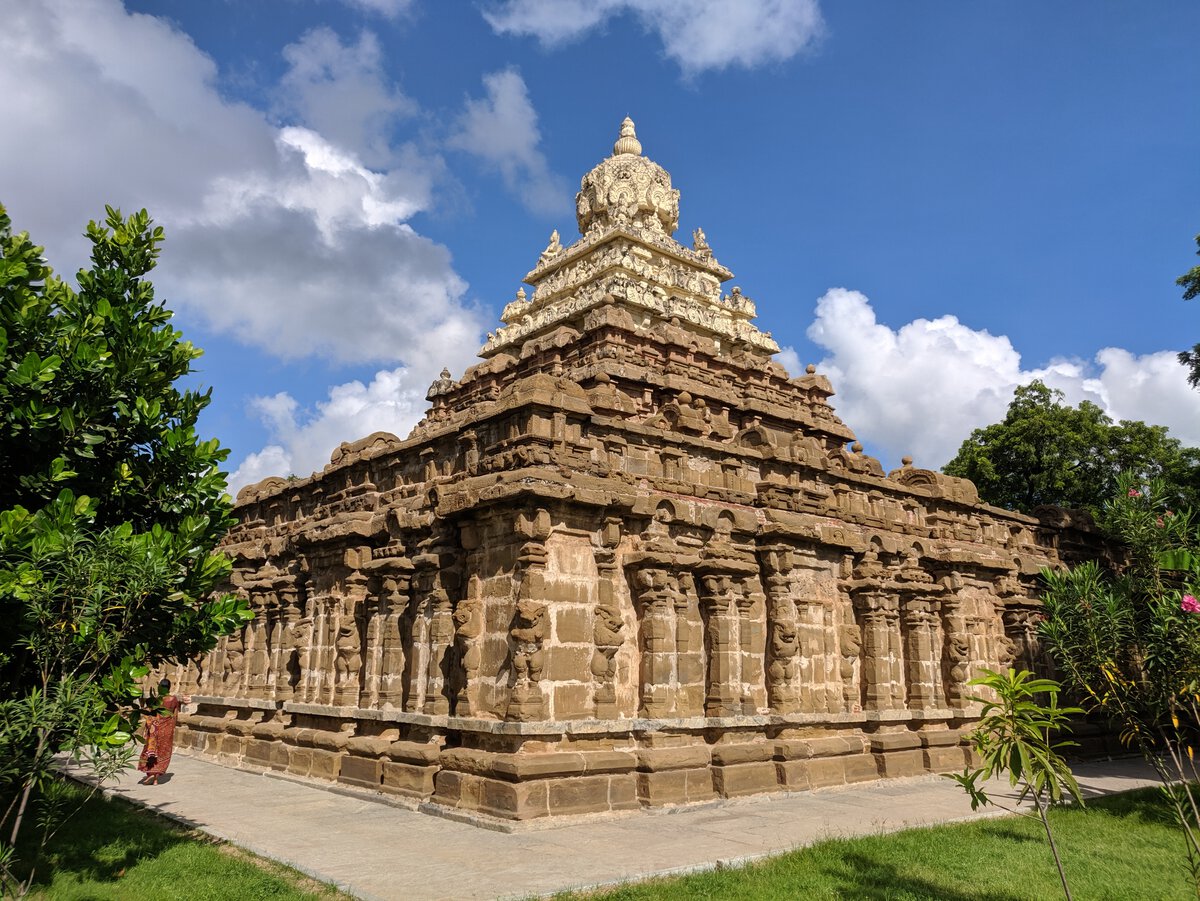
While the Ekambareswarar, Kailasanathar, Kamakshi Amman, and Varadaraja Perumal temples are the stars of Kanchipuram, the city is home to many other significant shrines that deserve attention. Each offers a unique glimpse into the region's rich spiritual and architectural heritage.
Ulagalantha Perumal Temple is a Divya Desam dedicated to Lord Vishnu's Vamana avatar (dwarf Brahmin who transformed into a cosmic giant). The main deity here is depicted in his colossal form, measuring the three worlds with his two steps. This temple beautifully captures the essence of this captivating mythological tale.
Vaikunta Perumal Temple, also known as Parameswara Vinnagaram, is another masterpiece of Pallava architecture built by Nandivarman II in the 8th century CE. What makes this Vishnu temple remarkable is its unique three-tiered shrine, each housing a different posture of Lord Vishnu (standing, sitting, and reclining). The temple walls are adorned with historical inscriptions and sculptural panels that narrate the history of the Pallava dynasty, making it a valuable historical record.
Kumarakottam Temple is dedicated to Lord Muruga (Kartikeya). It is located between the Ekambareswarar and Kamakshi Amman temples, forming a sacred triangle. It's believed that Lord Muruga worshipped his parents, Shiva and Parvati, in these two temples. The temple is known for its serene ambience and vibrant festivals, especially during Skanda Shashti.
Ashtabhuja Perumal Temple is another Divya Desam dedicated to Lord Vishnu, known for its unique idol of the deity with eight arms, each holding a different weapon or symbol. This rare depiction showcases the Lord's immense power and protection.
Chitragupta Swamy Temple is a rare temple dedicated to Lord Chitragupta. Lord Chitrgupta is the divine accountant who records the good and bad deeds of mortals, this temple offers a different spiritual perspective. It's believed that worshipping here can help one atone for their sins.
Kanchipuram holds immense significance for both Vaishnavites and Shaivites. The city is home to 15 of the 108 Divya Desams, making it a major pilgrimage circuit for Vishnu devotees. These temples are revered in the ancient Tamil hymns of the Alvars, known as the Nalayira Divya Prabandham.
Similarly, Kanchipuram boasts 11 Padal Petra Stalams, Shiva temples that have been glorified in the Tevaram hymns by the Nayanars, a group of sixty-three Tamil Shaivite poet-saints. This rich concentration of sacred sites underscores Kanchipuram's profound spiritual importance.
To make the most of your spiritual and cultural journey to Kanchipuram, here are some practical tips:
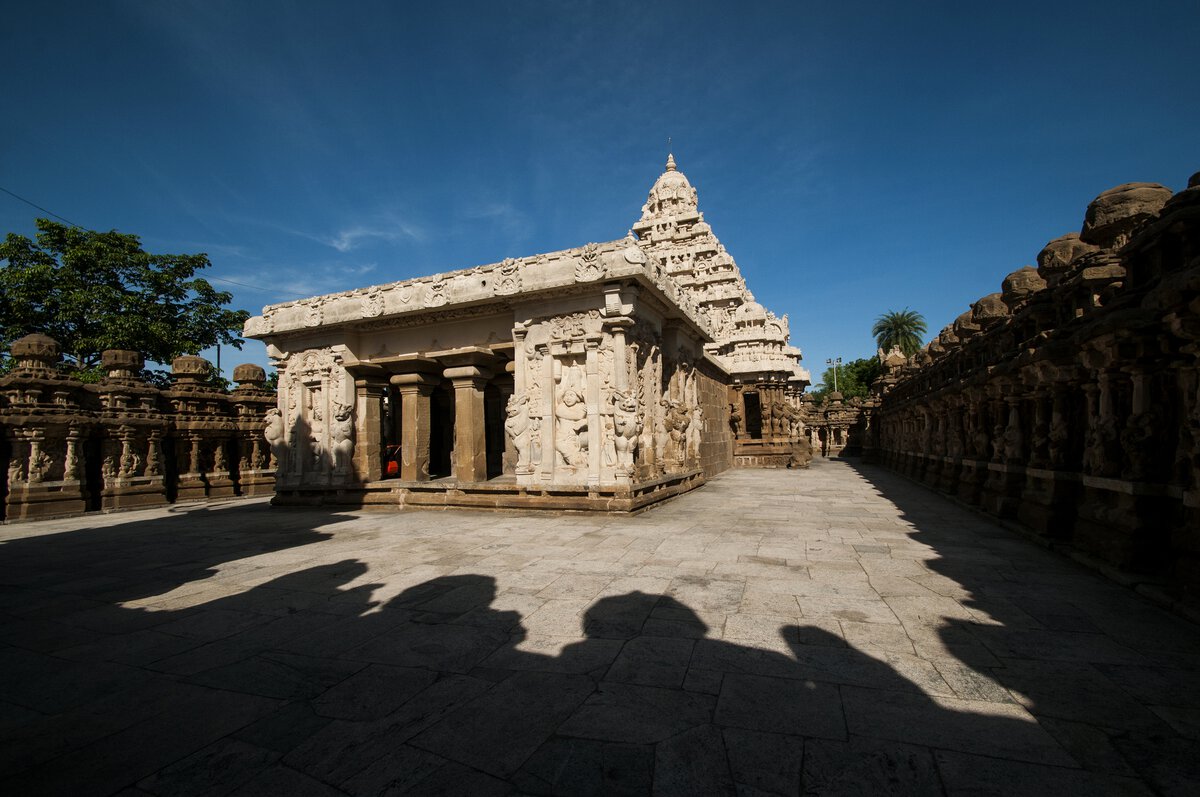
The best time to visit Kanchipuram is during the winter months (October to March). The weather during this period is pleasant, with mild temperatures, making it comfortable for temple hopping and exploring the city. Summers (April to June) can be scorching, while the monsoon season (July to September) brings heavy rainfall, which might hinder sightseeing.
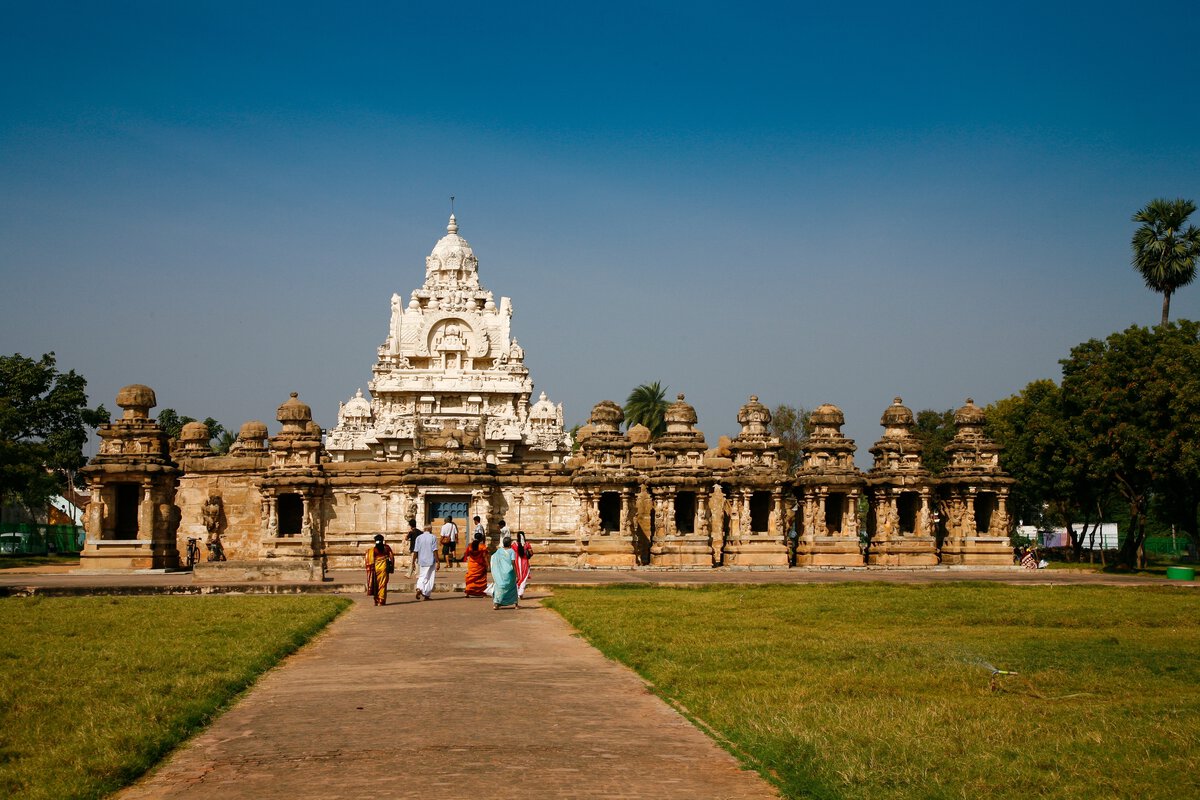
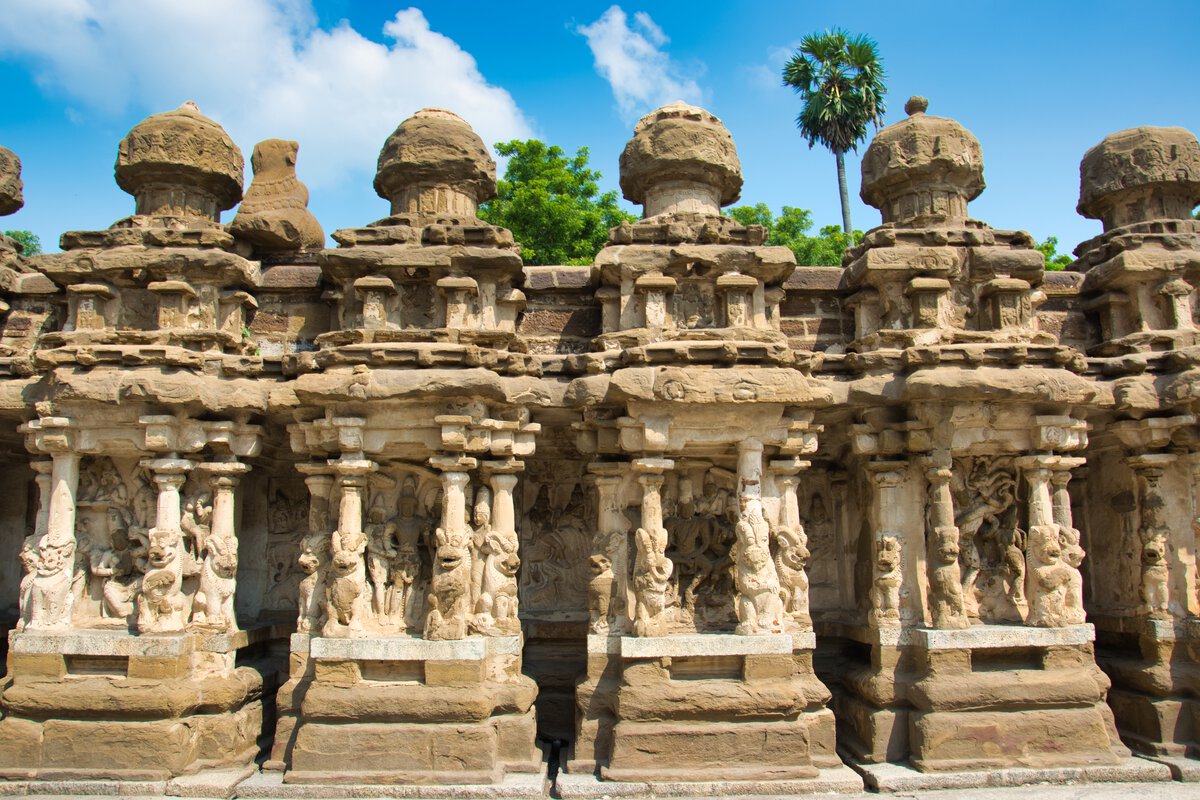
Absolutely! Kanchipuram is not just a pilgrimage site; it's a profound cultural and historical destination that welcomes everyone. For non-Hindus, the city offers:
After immersing yourself in the spiritual grandeur of Kanchipuram, why not extend your memorable family vacation? Club Mahindra offers comfortable stays in nearby destinations, allowing you to relax and rejuvenate while continuing your exploration of South India.
Consider heading to the charming Union Territory of Puducherry (Pondicherry), a short drive from Kanchipuram. Here, you can unwind at the Club Mahindra Puducherry resort. This resort in Puducherry is known for its serene ambience and excellent amenities. Explore the unique blend of French colonial heritage and spiritual journey that Puducherry offers, including the famous Auroville. Club Mahindra resorts are designed to provide immersive, family-friendly, and experience-driven holidays, perfectly aligning with the spirit of your Kanchipuram journey.
Kanchipuram is most famous for its ancient temples, earning it the title "City of Thousand Temples," and for its exquisite Kanchipuram silk sarees.
Yes, it is a significant Hindu pilgrimage centre, revered by both Shaivites (devotees of Lord Shiva) and Vaishnavites (devotees of Lord Vishnu).
The Kanchi Kailasanathar Temple, built in the late 7th and early 8th centuries CE by Pallava King Rajasimha, is generally considered the oldest structural temple.
While known as the "City of Thousand Temples," there are hundreds of temples, with several dozen being prominent and historically significant, rather than an exact thousand active temples.
Kanchipuram is renowned for its Kanchipuram silk sarees, woven with pure mulberry silk and intricate zari work, known for their durability and vibrant designs.
Kanchipuram was a major centre of education and spirituality and served as the capital for powerful South Indian dynasties like the Pallavas, Cholas, and Vijayanagara kings, who significantly contributed to its temple architecture.
Mahindra Holidays & Resorts India Ltd. (MHRIL), a part of Leisure and Hospitality sector of the Mahindra Group, offers quality family holidays primarily through vacation ownership memberships and brings to the industry values such as reliability, trust and customer satisfaction. Started in 1996, the company's flagship brand ‘Club Mahindra’, today has over 300,000 members , who can holiday at 140+ resorts in India and abroad.
We use cookies to personalise content and to provide you with an improved user experience.By Continuing to browse this site you consent to the use of cookies.Please visit our cookie policy for further details.

Welcome to ClubMahindra.com In order to provide a personalised experience for you, we use cookies to enable some website functionality. Cookies help us see which articles most interest you; allow you to easily share articles on social media channels; permit us to deliver content personalised to your interests and locations; along with many other site benefits. For more information, please review our Cookie Policy
When you visit any website, it may store or retrieve information on your browser, mostly in the form of cookies. This information might be about you, your preferences or your device and is mostly used to make the site work as you expect it to. The information does not usually directly identify you, but it can give you a more personalized web experience. Because we respect your right to privacy, you can choose not to allow some types of cookies. Click on the different category headings to find out more and change our default settings. However, blocking some types of cookies may impact your experience of the site and the services we are able to offer.
Because we respect your right to privacy, you can choose not to allow some types of cookies and you have the right to withdraw your consent by send a mail to email id [email protected]
These cookies are essential in order to enable you to move around the site and use its features, such as accessing secure areas of the site. Without these cookies, services you have asked for cannot be provided.
These cookies allow us to employ data analytics so we can measure and improve the performance of our site and provide more relevant content to you. These cookies don't collect information that identifies a visitor down to an individual level that is available to us. These cookies are not passing personally identifiable information to any external third party other than in limited cases when we engage a service provider to act on our behalf but who is then unable to use the data for their own purposes.
Performance cookies are generally third-party cookies from vendors we work with or who work on our behalf that collect information about your visit and use of the Club Mahindra website, for instance which pages you visit the most often, and if you get error messages from web pages. These cookies don't collect information that identifies a visitor. All information these cookies collect is anonymous and is only used to improve your overall experience on how the website works. Third party vendors may have access to this data and may use it to improve their overall services and offerings.
Functionality cookies allow a site to remember choices you make (such as your user name, language or the region you are in) and provide more enhanced, personal features. These cookies cannot track your browsing activity on other websites. They don't gather any information about you that could be used for advertising or remembering where you've been on the Internet outside our site.
Third-party advertising and social media cookies are used to (1) deliver advertisements more relevant to you and your interests; (2) limit the number of times you see an advertisement; (3) help measure the effectiveness of the advertising campaign; and (4) understand people's behaviour after they view an advertisement. They are usually placed on behalf of advertising networks with the site operator's permission. They remember that you have visited a site and quite often they will be linked to site functionality provided by the other organization. This may impact the content and messages you see on other websites you visit. If you do not allow these cookies you may not be able to use or see certain these sharing tools content on our website.